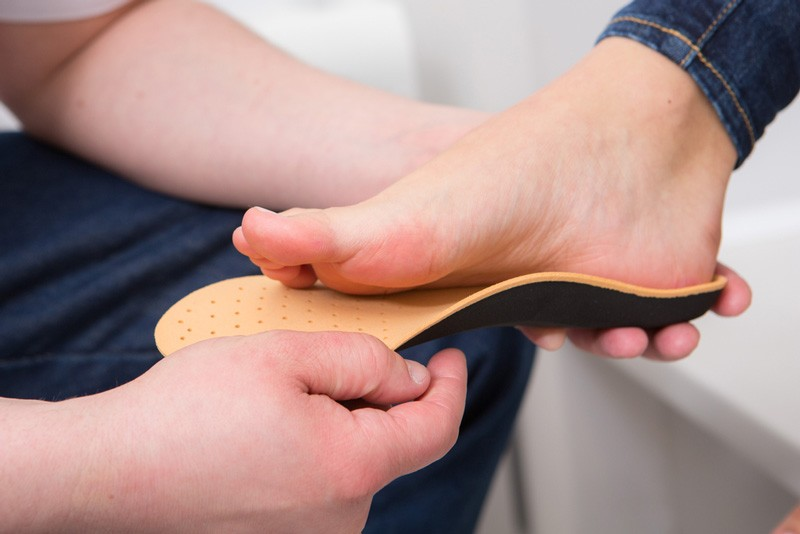Peripheral and autonomic neuropathy are common diabetes complications. Diminished blood flow from the blockage of the arteries feeding the foot can impair pain sensation and impede the body’s infection fighters. People with these conditions must carefully check their feet and toes every day for a possible injury. Here are some basic steps to help take care of your feet:
- Know your feet. Take a good look every day to see if you’ve cut or bruised your feet without realizing it. Pay attention to any growths or discoloration. If your foot swells or color changes, for example, it could be a sign of a ligament/tendon tear, bunion, hammertoe, fractured bone, or poor circulation.
- Practice good foot hygiene. Wash your feet every day. Dry them thoroughly, especially between the toes. Moisturize any dry skin (but not between your toes), or dust with foot powder to keep your feet dry.
- Cut the nails straight across to avoid ingrown toenails, which can lead to infection. However, be careful when wielding the scissors: if you’ve lost sensation in your feet, or if your nails have hardened, consider having your nails trimmed by a clinician at FootSecure.
- Protect your feet. Wear shoes with ample cushioning and socks that protect against friction. Make sure your shoes fit by having your foot measured every time you buy a new pair. Avoid high heels or shoes with pointy toes. If you must wear such shoes for dressy occasions, try to limit the amount of time they are on your feet.
- Lose weight if you’re overweight. Every extra pound increases the pressure on your feet.
- Exercise regularly. Exercise, such as walking, improves circulation.
- Don’t smoke and drink in moderation. Smoking impairs circulation. Avoid excessive consumption of alcohol, which can impair nerves already at risk because of diabetes. (drinking as no more than two standard drinks per day for men under age 65 and one drink per day for women. – A drink is defined as 300ml beer, 150ml of wine, or 30ml of hard liquor.)
- Learn when to seek help. If you have diabetes, you’re also more prone to complications. If you develop any foot problems, you must see a doctor. Don’t try to treat yourself at home.
- Use appropriate footwear and orthotics. Therapeutic shoes and inserts for people with diabetes, are important to reduce ulceration and foot and leg amputations. Ask your doctor about the customized orthotics, friction-free footwear, or any other foot devices that you may require.
Adopted from ISSUE #4 OF 6 IN AN E-MAIL SERIES from HMS

